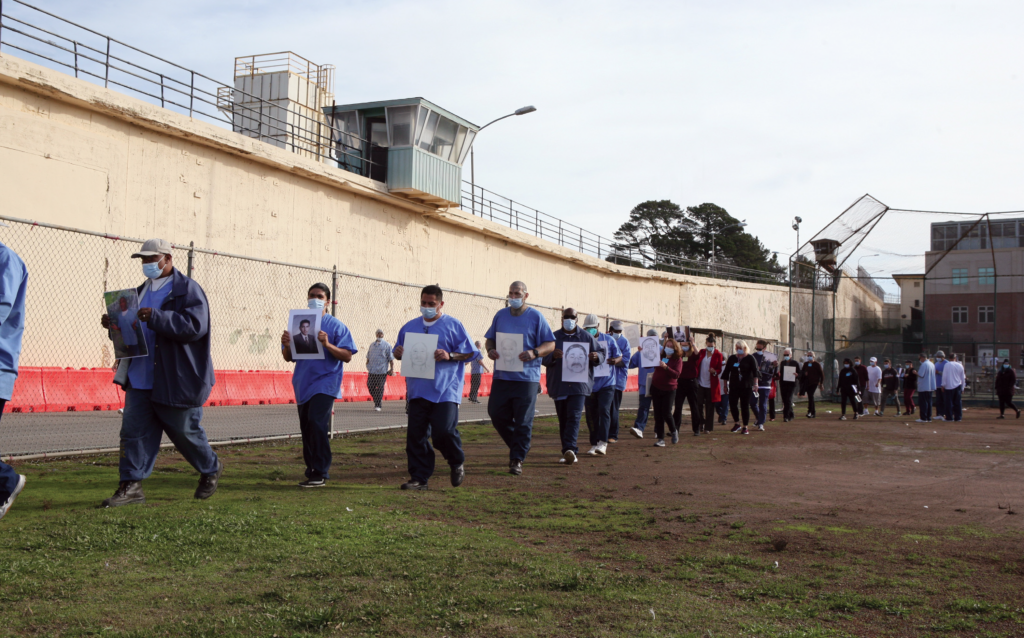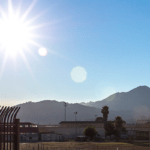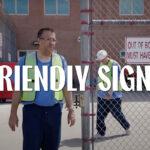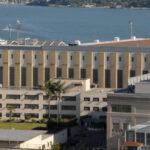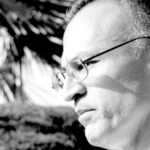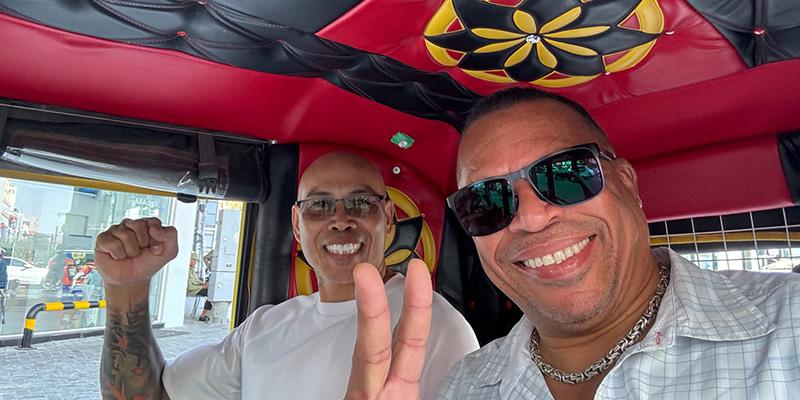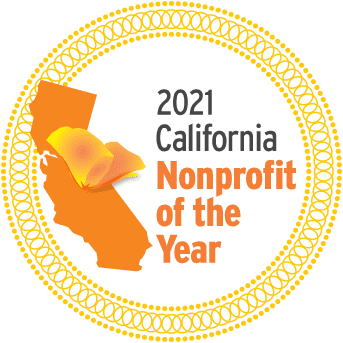Two years ago, in spring of 2020, the COVID-19 pandemic changed life as we know it and ushered in a period of acute trauma for the residents at San Quentin and their loved ones. Within the first few months of the pandemic, 75% of the population became infected, hundreds became seriously ill, and 28 died. In honor of the two year anniversary of this horrific time, we are publishing a series of writings from students reflecting on the COVD pandemic.
In December of 2019, the coronavirus began to sweep across our world, like a dark shadow slowly eclipsing our planet. With this unknown shadow came shock waves of fear that rippled through every community, one after another. We all questioned the fate of humanity, whether openly or in secret. Our questions evidence a deep seeded fear that we all felt, and still feel, whether expressed or unexpressed.
But, for those of us considered to be in a state of ill repute, enclosed within the death traps that are American prisons, our fears were heightened ten times over. As a California prisoner, I was only able to watch news reports of what was happening from my prison cell in San Quentin; and catch snippets regarding the dire situation from conversations with volunteer staff that frequent the prison from the community. None of what I observed on television, or learned from those conversations foretold, or would prepare me for the situation that was to come.
The disease marched rapidly across our planet devouring all in its path. Like nothing anyone had ever seen before. At first, even though I (by skin complexion, ethnicity, and prisoner status) am undesirable in the structure of the American system, my fear invoked this attitude of American exceptionalism. Backed up by Trump’s misguided denials and misinformation, I found myself saying “that’s happening to those other people; it (the disease) will never hit ‘US.’ Our scientists will find a cure.” This illusion lasted only a moment.
On May 30, 2020, the disease hit San Quentin like an atomic bomb. A fear like I had never known before swept over me and the entire institution. It was palpable. I could taste it. I could feel it. It was all around me, thick like Jell-0. Making my fears worse, there was complete silence from those prison officials who were supposed to be in the know—prison administrators, doctors, and staff. No one relayed information to those of us trapped within these walls. It was like being handcuffed and-blindfolded on a shooting range—Covid being the marksman and bullet. You hear people being struck all around you, and you think to yourself if someone would just tell me which way to turn, to run, to duck, something, I could save myself. However, no warnings came. The only thing left for me to do was stay still, make myself as small as possible, and pray.
On June 23, 2020, my worst fears were realized, I was struck by COVID. I was placed in the hole under the auspices of quarantine. There I sat for 60+ days alone struggling to cope with what was happening to me. No smell, no taste, struggling to breathe, every moment wondering, is this where my life ends. In that dusty, smelly cell (not legally big enough for a dog), I believed I would breathe my last breath. It may have been because of fate, a higher power, or just pure dumb luck; I survived, but not unscathed. I, like so many others, have tried to resume life as though nothing has happened, as though the events of the last two years are a common everyday occurrence. As though I was bigger than the event. But, knowing better and having learned from the explosion which led me to attempt to murder another human being, I know unprocessed trauma is a fuse leading to an explosion. I know the events I have just survived traumatized me, and if I don’t admit and acknowledge that trauma, it will explode.
In the weeks and months since improving from COVID and being released from the hole, I feel the buildup of old pressures: agitation, animosity, anger, and negative feelings toward people for no reason and from a source unknown. This I know to be signs of trauma for me. I know if left unchecked this trauma will come out in other areas of my life and most likely in self-destructive ways.
As I look around my prison yard, I see the same signs of trauma in others that I see in myself. The only difference being, very few know the origins of what they feel, why they feel it, or what to do about it. Understanding this mounting pressure of trauma, I know there is an explosion to come. Whether there will be many small explosions or one giant explosion, I cannot predict. One thing is for sure though: there will be an explosion if our trauma is left unacknowledged and unchecked.
The knowledge of my own trauma and how it has played out in my past is what motivated me to commit my all to the “Mourning Our Losses” event held in November 2021 to memorialize those we lost to COVID. I know the first, and perhaps most important step in healing from any form of trauma is admitting that hurt, fear, and uncertainty is threatening my sense of security. To pretend to be unaffected by a situation like COVID is a recipe for disaster. Without serious professional help for everyone, especially those of us trapped within these walls during COVID, suffering will be the consequences of our failure, for us and our communities.
Acknowledging and mourning what we have lost to COVID as a community, is essential to a healthy processing of this unprecedented event. I believe it to be my duty to contribute my all to establishing a healthy community. My participation in the “Mourning Our Losses” event was, for me, a small step in that direction.
Perhaps this event, put on by a handful of people in blue, will spark a larger movement both on the inside and in the community to speak about the trauma that COVID has brought; and produce a resolute commitment to mourn and heal as a community. (Read more about Mourning Our Losses.)
Photo Courtesy of San Quentin News
